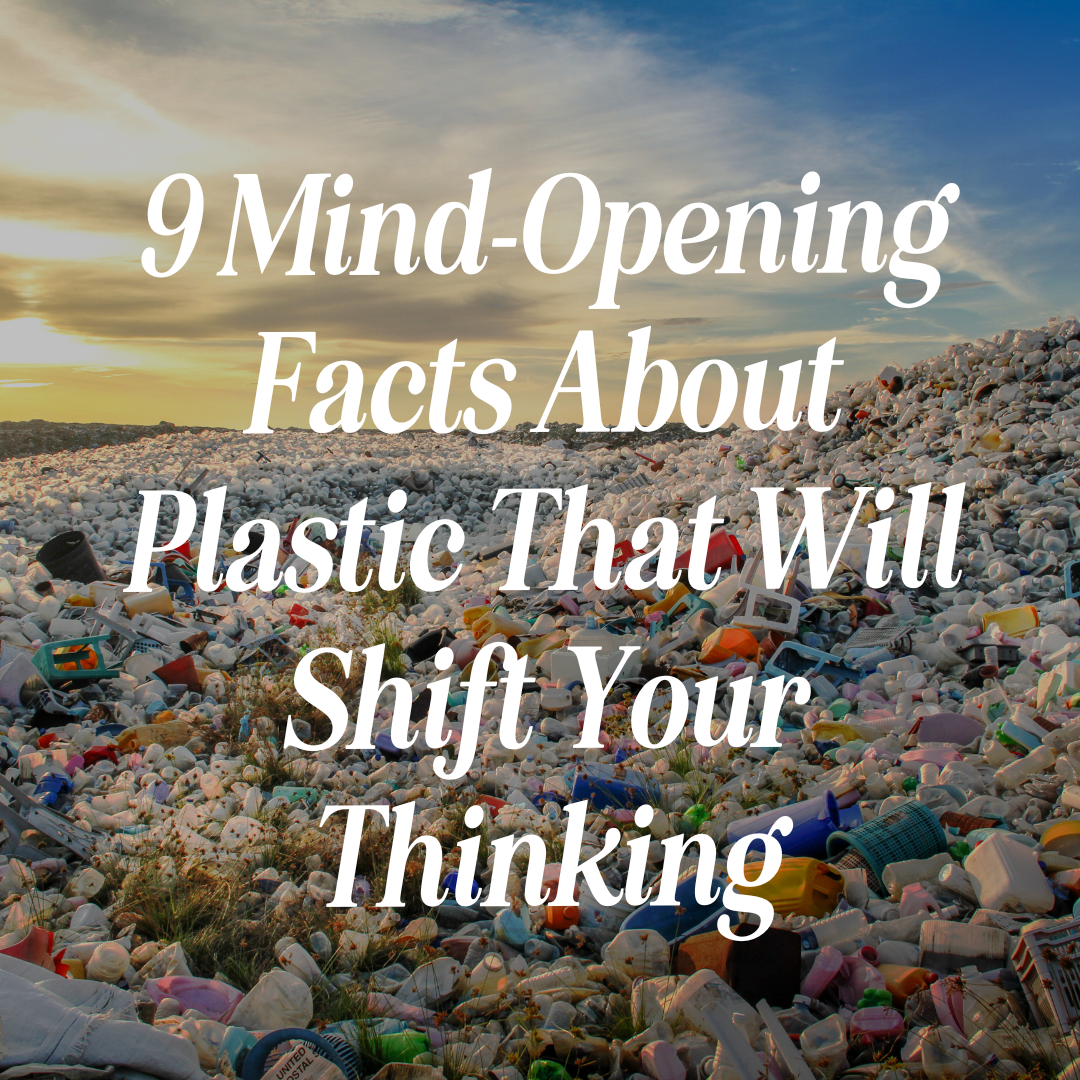April 26, 2024
Have you ever stopped to think about the impact of plastic on our planet? After learning more about this year’s Earth Day theme, “Planet vs. Plastics,” I decided to do some research. What I found was eye-opening, to say the least. I’ve gathered nine mind-opening facts about plastic that completely changed my perspective, and I wanted to share them with you.
Raising Awareness
My intention here is simply to provide information. By raising awareness about these issues, we can all make more informed decisions about our impact on the environment. Let’s take a moment to explore these facts together and see how we can make a positive change for our planet.
Are you ready? Let’s dive in!
FACT #1: Since plastic was introduced in the 1950s, a staggering 8.3 BILLION Metric Tons (9.1 BILLION US Tons) of plastic have been produced.
FACT #2: 79% of the plastic ever produced still sits in landfills or the natural environment, with only a small amount being incinerated or recycled.
FACT #3: Every year, the world produces more than 26 million US tons of polystyrene (plastic foam). In the United States alone, approximately 25 billion Styrofoam coffee cups are thrown away annually.
FACT #4: At least 14 million tons of plastic end up in our oceans every year. Unfortunately, many countries lack the necessary infrastructure to prevent plastic pollution, including sanitary landfills, incineration facilities, recycling capacity, circular economy infrastructure, and proper waste management systems.
MORE FACTS
FACT #5: Americans purchase about 50 billion water bottles per year, averaging about 13 bottles per month for every person in the U.S. By switching to a reusable water bottle, you could save an average of 156 plastic bottles annually.
FACT #6: Each year, the average American ingests more than 70,000 microplastics in their drinking water supply. These microplastics come from various sources, mainly linked to littering, stormwater runoff, and poor wastewater management in treatment facilities.
FACT #7: The US passed the Microbead-Free Waters Act of 2015, which banned plastic microbeads in cosmetics and personal care products sold in the United States. However, there are no regulatory limits on the levels of microplastics in bottled water.
FACT #8: It’s crucial to note that the label “BPA-free” on a bottle’s container doesn’t mean the product is free from other harmful chemical compounds.
FACT #9: Worldwide, one million plastic bottles are purchased every minute, and up to five trillion plastic bags are used each year. Visual Feature | Beat Plastic Pollution
Plastic pollution is a global crisis that demands urgent action. By being mindful of our consumption and making simple changes to reduce our use of single-use plastics, we can all contribute to a cleaner, healthier planet. If you want to learn more, visit https://www.earthday.org.
If you’re interested in joining me in making a difference, I’d like to propose a challenge:
Go Single-Use Plastic-Free for 30 days
Will you join me in going single-use plastic-free for the next 30 days? Small steps can lead to big results. If we can be intentional about not purchasing single-use plastic or using it at all for the next month, we can make a significant difference.
As Mahatma Gandhi said, “Be the change you wish to see in the world.” This is an opportunity for us to embody that change. The facts speak for themselves, and our planet needs us. After all, there is no Planet B!
Let’s commit to making a difference by reducing our plastic consumption and embracing sustainable alternatives. Together, we can create a cleaner, healthier planet for generations to come.
Are you in? Let’s do this!
xo, Chelsea
~ Did you know an estimated 1,800 gallons of water go into producing a single pound of beef? With that much water, you could take 105 eight-minute showers a day! A solution to this is to start incorporating more plant-based foods into your diet. Not sure where to start? Check out my guide on plant-based wellness here.
Leave a Reply Cancel reply
Meet Chelsea
Chelsea Backman is a national board-certified health & wellness coach, multi-passionate entrepreneur, proud mother of two, blogger and content creator. With a deep-rooted passion for whole body health, her mission is to empower her community with the tools, knowledge, insights, and resources they need to take control of their health and be the best version of themselves—on their own terms.
Explore all the things....
holistic health
PERSONAL GROWTH
wellness
HEALING
CONSCIOUS LIVING
MOTHERHOOD
Copyright Hyperspective Health 2023
DISCLAIMER: THIS WEBSITE DOES NOT PROVIDE MEDICAL ADVICE. The information provided in or through this Website is for educational, inspirational, and informational purposes only and solely as a self-help tool for your own use. No material on this site is intended to be a substitute for professional medical advice, diagnosis or treatment. Always seek the advice of your physician or other qualified healthcare provider with any questions you may have regarding a medical condition or treatment and before undertaking a new health care regimen, and never disregard professional medical advice or delay in seeking it because of something you have read on this website.
Copyright Hyperspective Health 2023
DISCLAIMER: THIS WEBSITE DOES NOT PROVIDE MEDICAL ADVICE. The information provided in or through this Website is for educational, inspirational, and informational purposes only and solely as a self-help tool for your own use. No material on this site is intended to be a substitute for professional medical advice, diagnosis or treatment. Always seek the advice of your physician or other qualified healthcare provider with any questions you may have regarding a medical condition or treatment and before undertaking a new health care regimen, and never disregard professional medical advice or delay in seeking it because of something you have read on this website.
